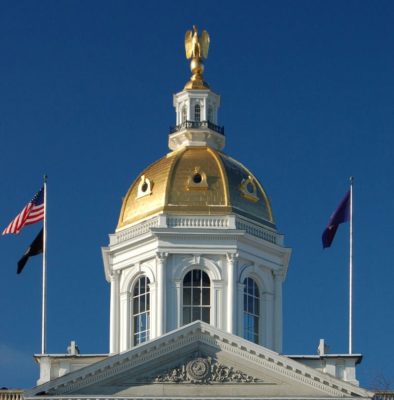This week, my committee met twice on Senate bills. Tuesday we voted on six of them. SB 439, prohibiting boycotts of Israel in state procurement, was the most divisive. I moved to kill the bill, since the committee has long opposed using the state procurement system to make political statements.
After some discussion, the vote was 14-6, with the six not wanting to seem unsupportive of Israel or anti-Semitic. All our other votes were unanimous.
SB 480, on regulation of real estate practice, was amended, as planned, to delete unnecessary sections and passed. SB 437, on local authority to amend the building code, passed without amendment. SB 372, on plumbing apprentices, had the House clarifying amendment to go to two apprentices per master plumber. SB 369, on public notice for professional board meetings, had a committee amendment to only extend the notice period for written comment, then passed. SB 306, on manufactured housing rulemaking authority, was amended to insert the necessary definition of dispute resolution.
We also discussed SB 485, which would require digital licenses, and realized that it was more complicated than we’d thought. Also, the testimony in favor was from a company that sells such a system, and it wasn’t clear that the interface with other states protected privacy well enough. So we recessed the executive session to prepare an amendment to cut out the digital licenses and just leave the boards’ responsibility to consider and evaluate military training and experience.
Wednesday, we started with SB 481, establishing Juneteenth as an official holiday, not just a proclaimed day. This was a concern to many members, as June 19 is pretty late for many schools, and we were not supportive of interrupting exams. Having an official holiday raised questions of time off (at taxpayer expense) for municipal workers, and how having government workers off when many private sector workers wouldn’t get a holiday was also questionable. We voted unanimously to not pass the bill.
SB 373, on the state building code, had been amended by the Senate to simply require the building code specify that leakage not exceed five air changes per hour. This number has changed several times recently, from seven to three in the 2018 energy code. The 2021 energy code (which we did not recommend) goes back to five; experience with buildings made to three air changes has shown that they build up moisture, favoring mold; chemicals from building materials and cleaning products; and tend to keep pollutants and allergens inside. From testimony, it seems the building code review board didn’t fully evaluate this specification by itself, but only as an element of the energy code; the home builders, who were pushing for the change, had also done a very poor job of presenting it as a stand-alone amendment. We ran out of time to vote on it, but I’m leaning in favor of the change.
Then we spent 3.5 hours hearing SB 440, on the board of optometry. Nationwide, optometrists are working to regularize the profession and increase their scope of practice; the opposition, here as well as elsewhere, comes from the ophthalmologists (eye surgeons.) We had testimony on the training and skills of optometrists, as well as their greater numbers and easier access – New Hampshire has 333 optometrists versus 77 ophthalmologists.
Some of the more important issues I heard were that only some of the optometrists are trained in the procedures they wish to add to their scope of practice – it’s a fairly recent addition, and only 2 of 24 optometry schools in the country are in states that allow optometrists to perform them (and so, get enough practice to actually qualify as trained.) The ophthalmologists report that approximately 13% of these procedures develop complications, and optometrists are not trained in treating these complications (per the ophthalmologists.) The bill is also rather badly written, with a long list of procedures they won’t do and no definition of the ones they want to add to their repertoire. So, off to subcommittee it went!
